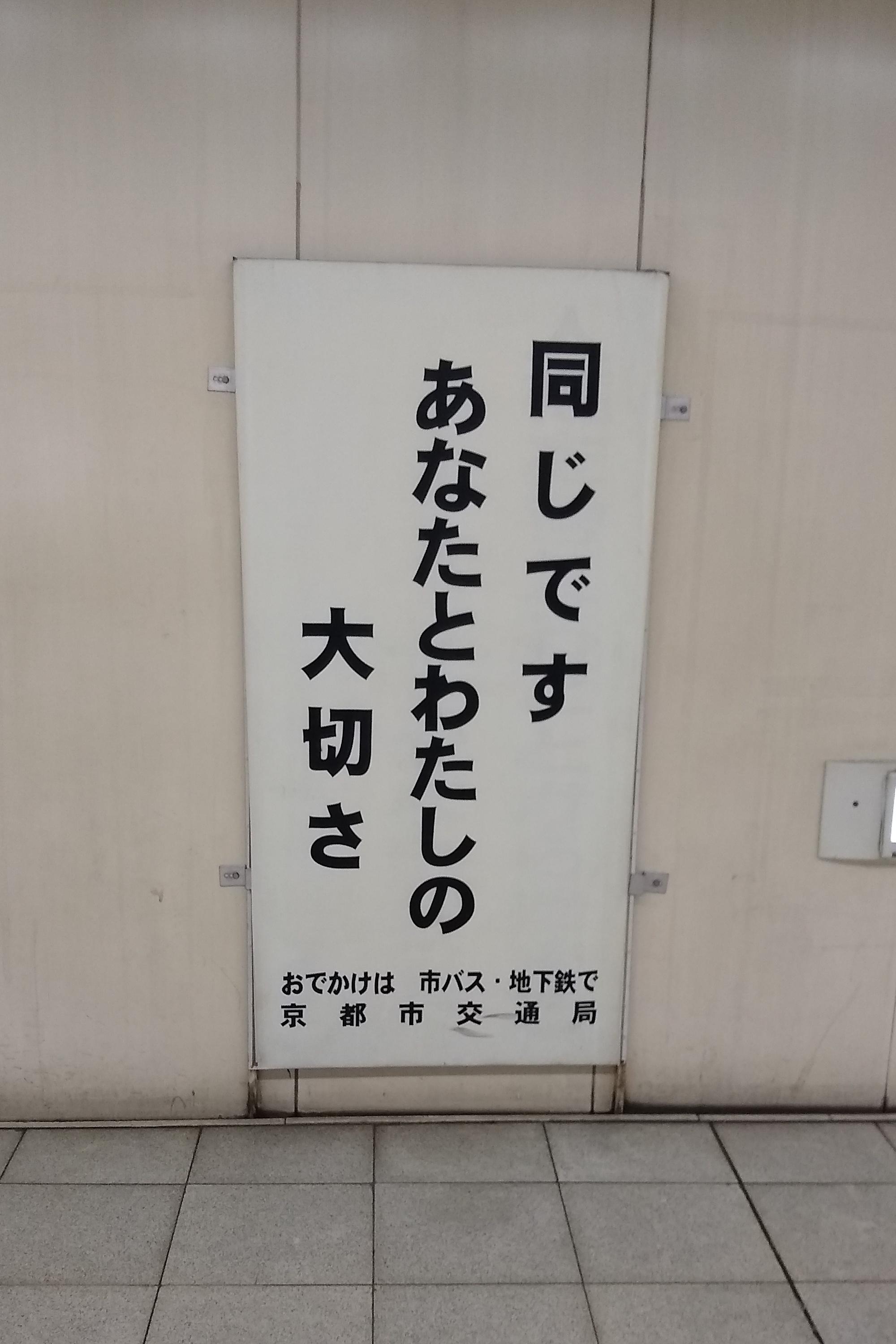
Jiamari (字余り, extra syllables) and jitarazu (字足らず, missing syllables) occur in haiku, other 5-7-5 poems, and tanka. It's actually quite common for Japanese poems to not meet the syllable structure and the missing / extra syllables can be used to artistic effect.
onaji desu anatato watashino daisetsusa
You and I are equally valuable
This poem by the Kyoto Municipal Transportation Bureau has 5-8-5 syllable structure. It uses the most neutral pronouns for you (anata) and I (watashi), which uses up one too many syllables. If you really had to, you could use kimi for you and boku or even ore for I to get 5-7-5. However, all those options must be worse than the extra syllable. Since the sign is made with the poem as-is, this was decided on as the best option. Kimi, boku, and ore are non-neutral pronouns which express humility or lack thereof, undermining the poem's message of equality.
Created .
Home > P Language Literature > PL East Asian language and literature > Jiamari and Jitarazu